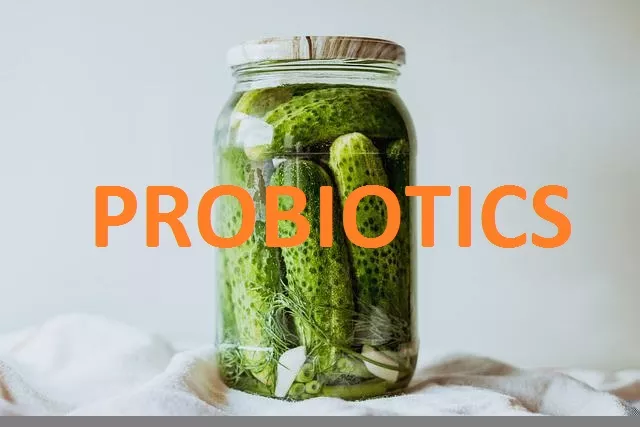Importance Of Probiotics To Our Health.

Probiotics are live microorganisms that are beneficial to health, when consumed or applied to the body. They are similar to those normally found in the body. Large number of bacteria live in our body, especially the colon. This colonic community of microorganisms is known as gut microbiota. Among these bacteria some are beneficial to health while the others can be harmful. There should be proper balance between these two groups to promote wellbeing. Probiotics can help restore the natural balance of bacteria in the gut when it's been disrupted by an illness or treatment. The other locations where beneficial microbes live are mouth,vagina,urinary tract,skin and lungs.
Good microbiome has been linked to numerous health benefits, such as weight loss, improved digestion, enhanced immune function,healthier skin,and reduced the risk of some diseases.
Someone’s microbiome is a diverse community of microorganisms, that are called microbes. These microbes are a combination of bacteria, fungi including yeasts, viruses and protozoa. People have unique microbiomes, meaning no two people have the same microorganisms. Identification of probiotics is done by analyzing the fecal matter of people who live closely with the natural environment, who eat natural foods.
The characteristics of microbes to be called a probiotic are, they can be isolated from a human, survive in the intestine after ingestion, have a proven benefit to you, and be safely consumed.
As mentioned above the main job of probiotics is to maintain the balance of microbiota in the body. When a sickness occurs, bad bacteria invades and increases its number, due to that the balance is lost. Probiotics or the good bacteria fight against the bad bacteria, bring back the balance. In addition to that Good bacteria support the immune function and control inflammation. Certain types of beneficial bacteria can also produce vitamins such as vitamin K and some of the B vitamins, help in digestion of food and breakdown and absorb medications. Some of them also turn fibers into short chain fats like butyrate, propionate, and acetate, which strengthen the gut wall and stimulate your immune system. This helps to support the gut wall cells to prevent bad bacteria that you may have consumed through food or drinks from entering your blood.
The metabolic activities of the gut microbiome resemble activities of an organ. Due to that, some scientists refer to the gut flora as the “forgotten organ”.
Eating a healthy diet that contains dietary fibers regularly is very important since the gut flora is highly sensitive to the diet. Studies show that an unbalanced gut microbiome is linked to numerous diseases such as obesity, type 2 diabetes, metabolic syndrome, heart disease, colorectal cancer, Alzheimer’s, and depression.
To make the “forgotten organ” functioning properly incorporate probiotic and prebiotic rich foods to your daily meals.
Probiotics may contain a variety of microorganisms. There are two specific groups of bacteria that are common called Lactobacillus and Bifidobacterium. So many yeasts such as Saccharomyces boulardii are also used as probiotics.
You can get probiotics from supplements, as well as from foods prepared by bacterial fermentation such as curd, yogurt, Buttermilk,Sourdough bread, Cottage cheese, kefir, Miso,sauerkraut, Fermented pickles, tempeh, and kimchi. Probiotics should not be confused with prebiotics, prebiotics are nondigestible food components that selectively stimulate the growth or activity of friendly microorganisms already in your gut. Synbiotics are products that combine probiotics and prebiotics. In one supplement of synbiotic, friendly bacteria along with some prebiotics (food for the bacteria to eat), are combined.
Probiotics may be effective against various digestive problems including antibiotic-associated diarrhea, irritable bowel syndrome, inflammatory bowel diseases such as Crohn’s disease and ulcerative colitis, Helicobacter pylori infections which can result in ulcers and stomach cancer. Many studies have shown positive results on the effectiveness of probiotic supplements, more research is still needed.
There are certain people who need to be careful when using probiotic supplements because there may be a risk of infection in those, including those who have a weakened immune system like people going through chemotherapy for example, people who have a critical illness, people who had surgery recently. Caution should also be used when giving probiotics to very sick infants.
Caution is always advised when starting with probiotics. Be sure to use a reputable product, start slowly, and get good advice from a trusted healthcare practitioner.
Author - Yashodha Jayalath
MSc in Food Science & Technology, PGIA University of Peradeniya, Sri Lanka.
BSc in Health Promotion, Rajarata University of Sri Lanka.
Pg Dip in Psychological Counselling & Psychotherapy, Institute of Psychological Studies Sri Lanka.
Associate Member of Sri Lanka National Institute of Professional Counsellors, Registration number 2015/1526